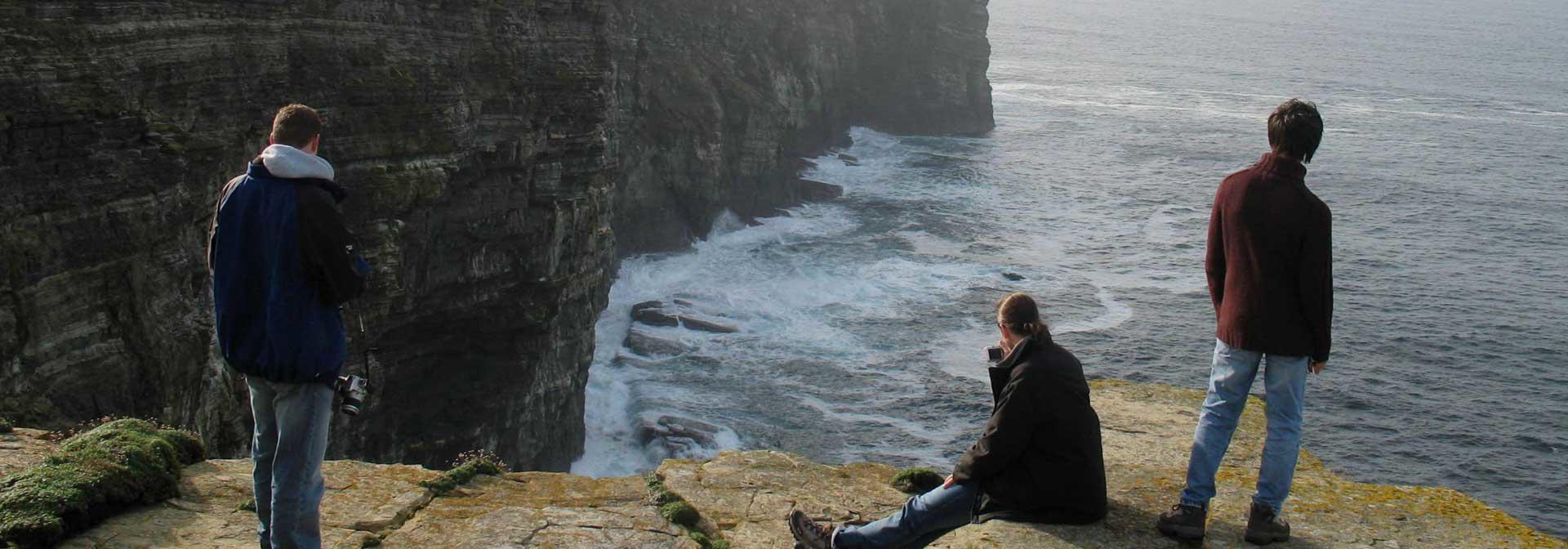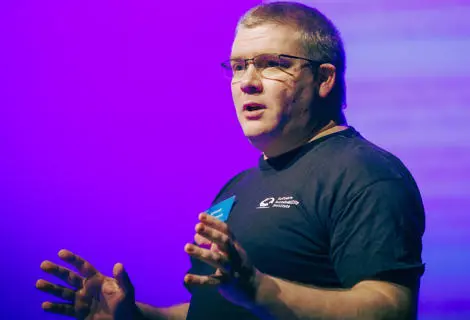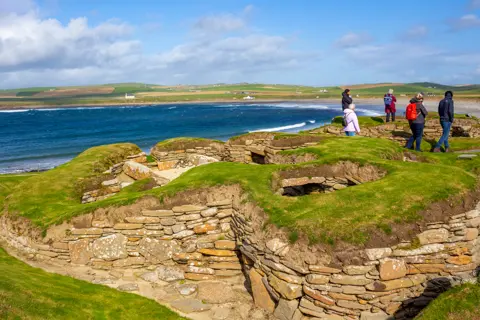Key information
- Level
- Postgraduate Taught
- Delivery type
- Full Time
- Degree qualification
- MSc
- Mode of delivery
- On-Campus
- Duration
- 1 year
- Location
- Orkney
- Start date
- September
MSc Renewable and Sustainable Energy Transition will equip you with the skills and knowledge to have a real impact as a leader in renewable energy and energy transition. You don’t need to be an engineer to apply for this master’s programme as it is suitable to professionals from a wide variety of academic backgrounds who want to work in the industry and through interdisciplinary teaching and learning, you’ll be prepared for active participation in the transitions of energy generation and use.
You’ll acquire a broad knowledge of renewable energy systems and the issues surrounding them, and you’ll gain the tools to understand the wider systems that rely on energy and look for solutions beyond the simple decarbonisation of existing activities.
At the centre of the programme is the discipline of Transition Engineering. This is a relatively new field that focuses on driving and facilitating transitions towards a more sustainable and resilient future. It is rooted in the recognition that significant societal and technological shifts are necessary to address pressing global challenges, such as climate change and resource depletion.
You’ll learn from experts in renewable energy, economics, and transition engineering, and develop a clear understanding of the key drivers of energy transition and transition engineering through being introduced to:
-
aspects of energy transition
-
the technologies of renewable energy generation and its integration into wider systems,
-
the importance of energy efficiency in buildings and in transport,
-
energy policy,
-
economics,
-
project finance,
-
environmental science, which is critical for predicting and managing the impacts of energy systems.
Teaching is reinforced with project work where emphasis is placed on simulating real-life situations and processes. Through this, you’ll learn how to use key communication platforms including digital tools for data analysis, modelling, and other interactive approaches.
Most the world’s greenhouse gas emissions relate to energy. This means that to achieve net zero, we must redevelop our energy systems at an unprecedented rate. According to a recent report, over 100,000 new people will be needed to work in the energy sector in the UK alone by 2030. Upon completion of this master’s programme, you will possess a diverse skill set that opens a wide range of opportunities and roles in renewable energy companies, government agencies, consulting firms, community groups, research institutions, and non-profit organisations.
This programme can also be studied online. For more information on courses, please refer to the "Customise Your Learning" section.
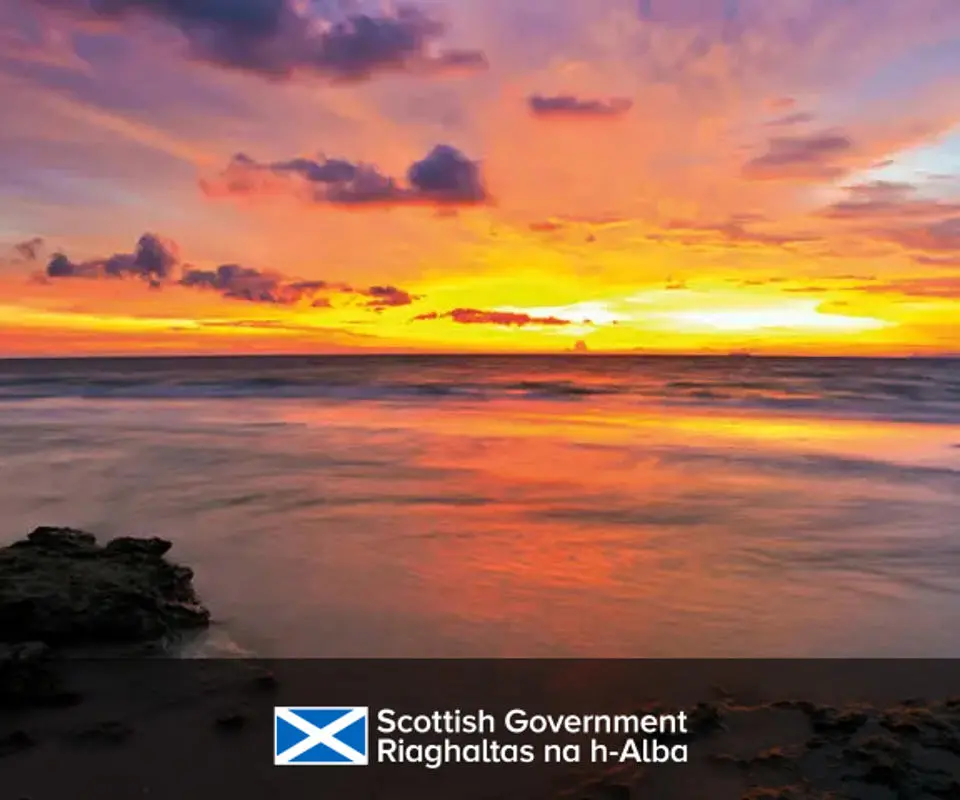
The Island Scholarship
The Island Scholarship, delivered in partnership with the Scottish Government and Orkney Islands Council, will help fund the tuition fees for both UK and International Students. The scholarship, subject to budget allocations, is expected to launch soon. In the meantime, we’re inviting students to register their interest — those who do will be the first to be contacted once the scholarship goes live.
Register interestYour student experience
Your learning will be informed by experts in renewable energy, economics and transition engineering at the International Centre for Islands Technology (ICIT) in Stromness, Heriot-Watt University’s Orkney campus, which is part of Heriot-Watt’s School of Energy, Geoscience, Infrastructure and Society. Your learning will also be informed by guest speakers from industry.
The Orkney campus is host to the Transition Lab, an “action research” group which works with a range of research organisations, businesses, and community groups to move Scottish islands towards decarbonisation through the Islands Centre for Net Zero.
The research relevance of this postgraduate programme ensures your studies remain innovative and industry focused.
Go Global
There are currently no Go Global opportunities for this particular programme. However, other Go Global opportunities may be available. Please contact studywithus@hw.ac.uk for more information.
Course content
September Intake - Orkney
Year 1
Mandatory September
- Economics of Renewable Energy
- Transition Engineering - Achieving zero carbon InTIME
- Renewable Technology 1: Generation
Mandatory January
- Energy Transition Lab
- Renewable Technology Commercialisation
- Supply Chain Management, Decarbonisation and Renewable Energy
- Integration of Renewable Technology
Mandatory May
- ILES Environment Dissertation
Optional September
- Environmental Processes
- Oceanography
- Climate Change, Sustainability and Adaptation
Disclaimer
The courses mentioned above may change between now and the time that you study. For more information, please view our Terms and Conditions.
Programme Video
Orkney Campus video
Study at Heriot-Watt University's Orkney Campus
Student testimonials
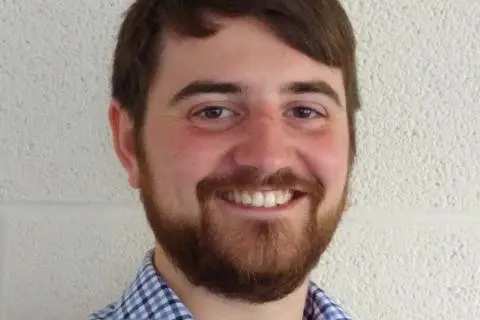
Duncan's story
Renewable and Sustainable Energy Transition
Moving up to Orkney has been a breath of fresh air. I have thoroughly enjoyed studying at the University and living in the heart of the marine renewables industry. There is so much to get involved in outside of university life that I have never had a dull moment living here.
Fees and funding
| Status | Full Time |
|---|---|
| UK | £10,864 |
| International | £20,456 |
- Status: Your residency status is usually defined as the country where you have been ordinarily resident for the three years before the start of your course.
- International: 'International' includes applicants from European Union countries who do not hold Pre-Settled or Settled status in UK. (This does not include students from the Republic of Ireland - see above).
Additional information
All course costs are covered by the tuition fee. For students studying at the Orkney Campus this includes electronic versions of the course notes.
Students should budget additional funds sufficient to cover living expenses such as accommodation, travel to and from the university, food, clothing and leisure pursuits.
Financial support
Tuition fee loans of £5,500 are available to Scottish distance learning students on taught postgraduate courses. Full-time distance learning postgraduate students can also access a £4,500 living cost loan. Find out more from the Students Awards Agency Scotland (SAAS)
Scholarships and bursaries
Postgraduate scholarships and bursaries
We aim to encourage well-qualified, ambitious students to study with us and we offer a wide variety of scholarships and bursaries to achieve this. Over £6 million worth of opportunities are available in fee and stipend scholarships, and more than 400 students benefit from this support.
Postgraduate European Union Scholarship
Open to any student coming from an EU country, this scholarship is an automatically applied £5,000 fee reduction for a full-time postgraduate taught programme at Heriot-Watt University.
Entry requirements
We have standard entry requirements for all of our courses that you will have to meet.
Year 1
A minimum of honours degree at 2:2 or non-UK equivalent in any academic subject provided you have basic maths skills. Evidence of experience from a work environment is also encouraged. Please include your CV as part of your application.
We welcome applications from international students and accept qualifications from around the world. Please refer to the entry requirements for your country for more details.
English language requirements
If your first language is not English, we'll need to see evidence of your English language ability.
The minimum English language requirement for entry to this programme is IELTS 6.0 (or equivalent) with no score lower than 5.5.
If you do not have IELTS 6.0, we offer a range of English language courses to help you meet the English language requirement for this programme prior to commencing your studies.
Please see our detailed English language requirements.
Why Heriot-Watt
We're the top university in Scotland for graduate outcomes which means that more of our graduates are employed or in postgraduate education than any other institution in the country and we ranked 5th in the UK.
We're also rated number one in the UK for CEO or MD roles, meaning more of our graduates go on to become CEOs or MDs than any other university in the whole of the UK. On top of that, we have beautiful campuses, across the globe, so you'll get a truly international education. Our Edinburgh Campus is home to Oriam, Scotland's National Sports Performance Centre combined with plenty of wellbeing resources, prioritising fitness and mental health for all students. Our Global Research Institutes look at solving real world issues such as climate change and saving our oceans as well as working on the next medical technological breakthrough and the future of AI and robots.
Student life
Explore facilities, and chat to staff and students
